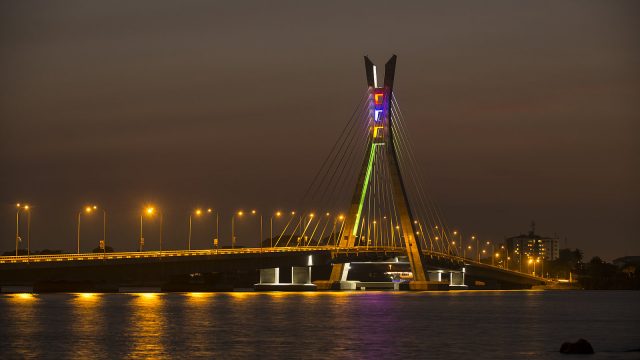A leading expert and Director of Turner & Townsend, Austria, Bruce Haswell, says Lagos State has become the most expensive place to build in Africa.
Haswell stated this in his keynote presentation, titled “Key signals in 2022 – Is it a time for some caution or more innovation “, at the 2022 Real Estate Discussions and Awards organised by Thinkmint Nigeria.
The event, which was held in Lagos, was attended by the Akwa Ibom State Commissioner for Information and Strategy, Ememobong Essien, who represented Governor Udom Emmanuel, who was the Special Guest of Honour.
The event was supported by Purple Group, Homework Group, Federal Housing Authority Mortgage Bank, UPDC, and Elan Orris Real Estate. It also had in attendance top players in the industry, representatives of government officials, and real estate investors.
According to him, internationally, Lagos is the 56th most expensive city to build compared to the 88 cities that were surveyed internationally.
“The results of this year’s survey were markedly different from our 2021 survey results, which highlight the enormous pressures facing construction markets and the impact they are having on construction costs,” he said.
“In our 2021 survey, there were 11 markets that were expected to have construction cost inflation of ten percent or more in 2021. In our 2022 survey results, there are 38 markets that suggested they experienced inflation of ten percent or more. Rising building material costs have been one of the key drivers of higher construction cost inflation over the last 12 months. Global supply-chain disruptions, high commodity prices, higher shipping costs, and supply shortages have caused this strong price growth,” he added.
He listed the major reasons for the global challenge to construction as general inflation, increasing interest rates, rising cost of construction, excessive lead times, geopolitical issues, transportation bottlenecks, and the COVID-19-related shutdowns in China which has led to considerable impact on supply, creating lengthy delays for many construction goods.
“Skilled labour shortages, a sharp rebound in construction activity, coupled with the delayed resumption of labour migration are limiting the availability of labour to complete the growing pipeline of work,” he said
“Rather than boosting domestic value added, trade restrictions were hurting Nigerians while PropTech, high tech manufacturing and ESG were innovative ways to demystify the key signals of the high construction cost in Nigeria,” he added.

